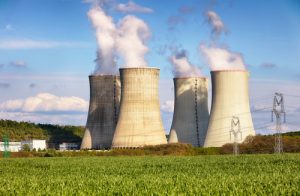
Bipartisan legislation introduced by U.S. Rep. Adam Kinzinger (R-IL) on Thursday would establish a framework for Nuclear Regulatory Commission (NRC) fees to increase transparency and certainty for nuclear plants that produce a significant source of the nation’s carbon-free energy.
The Nuclear Utilization of Keynote Energy (NUKE) Act, H.R. 1320, would also improve the process for licensing new plants and would require the NRC to begin a rulemaking process on decommissioning that brings public input into the process.
“Nuclear power is incredibly important for the district I represent, and for the country,” Kinzinger said.
Nuclear contributes nearly $9 billion annually in Illinois and the four plants in Kinzinger’s district employ more than 3,500 people.
“I’ve visited these plants and know we need to make the regulatory process more efficient and transparent,” Kinzinger said. “The NUKE Act will create more certainty for nuclear plant operations, without compromising safety, and encourage greater investment for the next generation of nuclear power.”
Kinzinger introduced the bipartisan bill with U.S. Rep. Mike Doyle (D-PA).
The Government Accountability Office (GAO) recently released a report that found the NRC fails to provide fee rule and supporting documents needed by stakeholders to understand fee calculations and to provide substantive comments to the agency.
U.S. Rep. Fred Upton (R-MI), the chairman of the House Energy and Commerce Subcommittee on Energy, said, “Clean, safe nuclear power produces zero emissions while powering local communities in both Michigan and across the country, but unnecessary and onerous regulatory requirements create undue burdens that limit nuclear power from reaching its full potential.”
The GAO reports coupled with Kinzinger’s bill would provide a path forward to increase the NRC’s accountability, Upton said.
“It’s imperative the NRC remain transparent and accountable to industry stakeholders, licensees, and the American people. Public confidence in the NRC is critical to protecting public health and safety; we must get this right.” Upton added.



